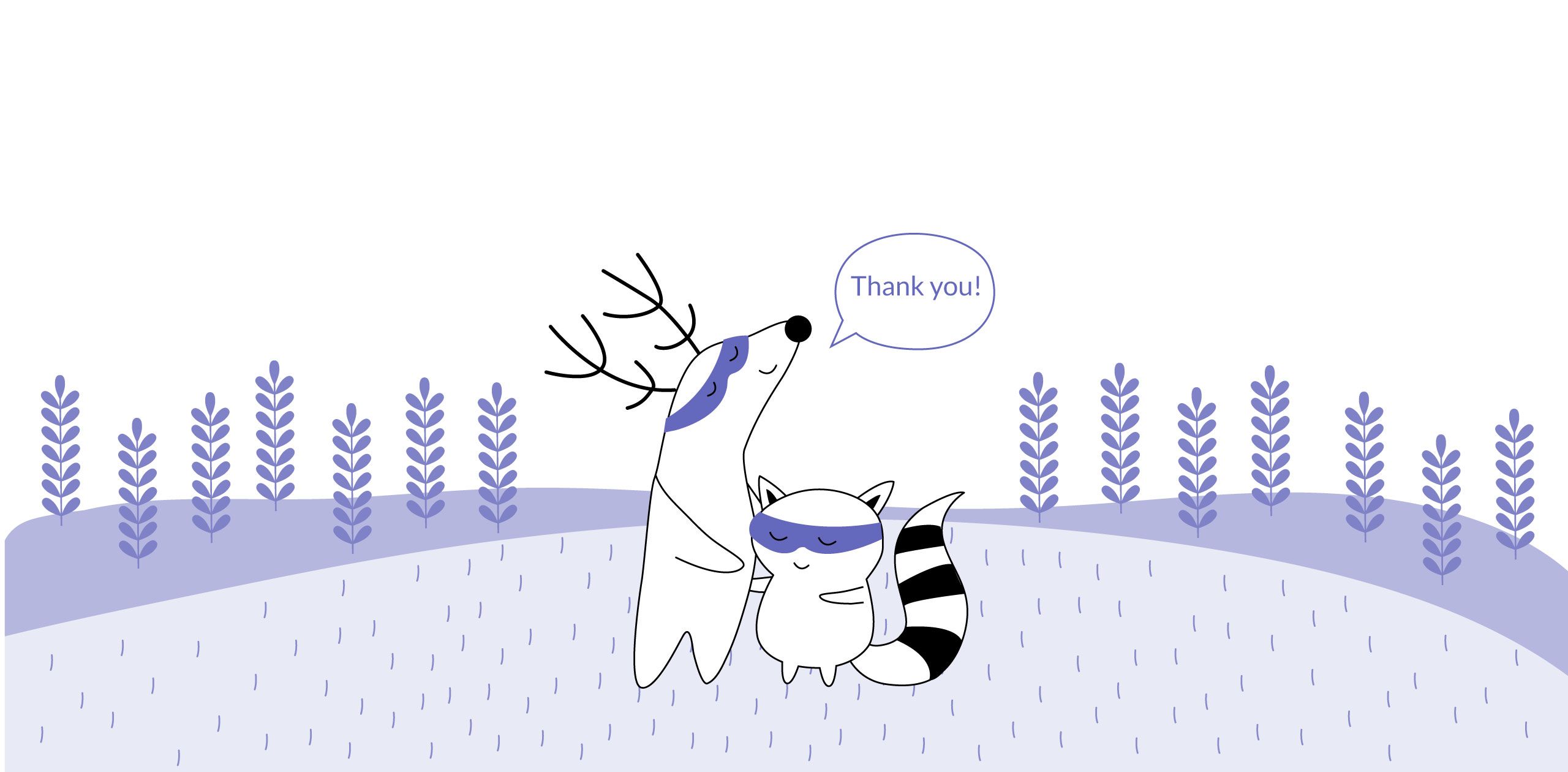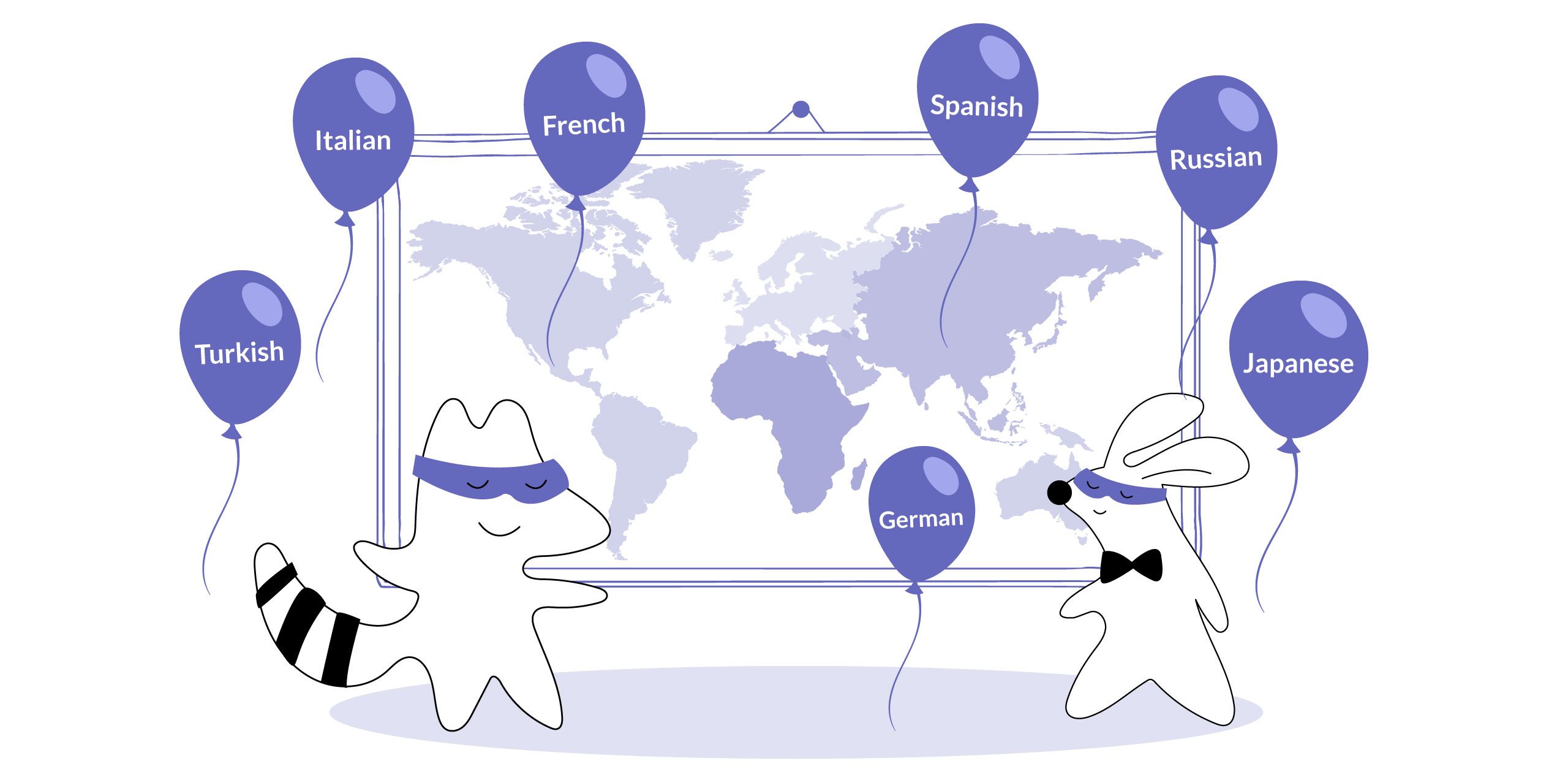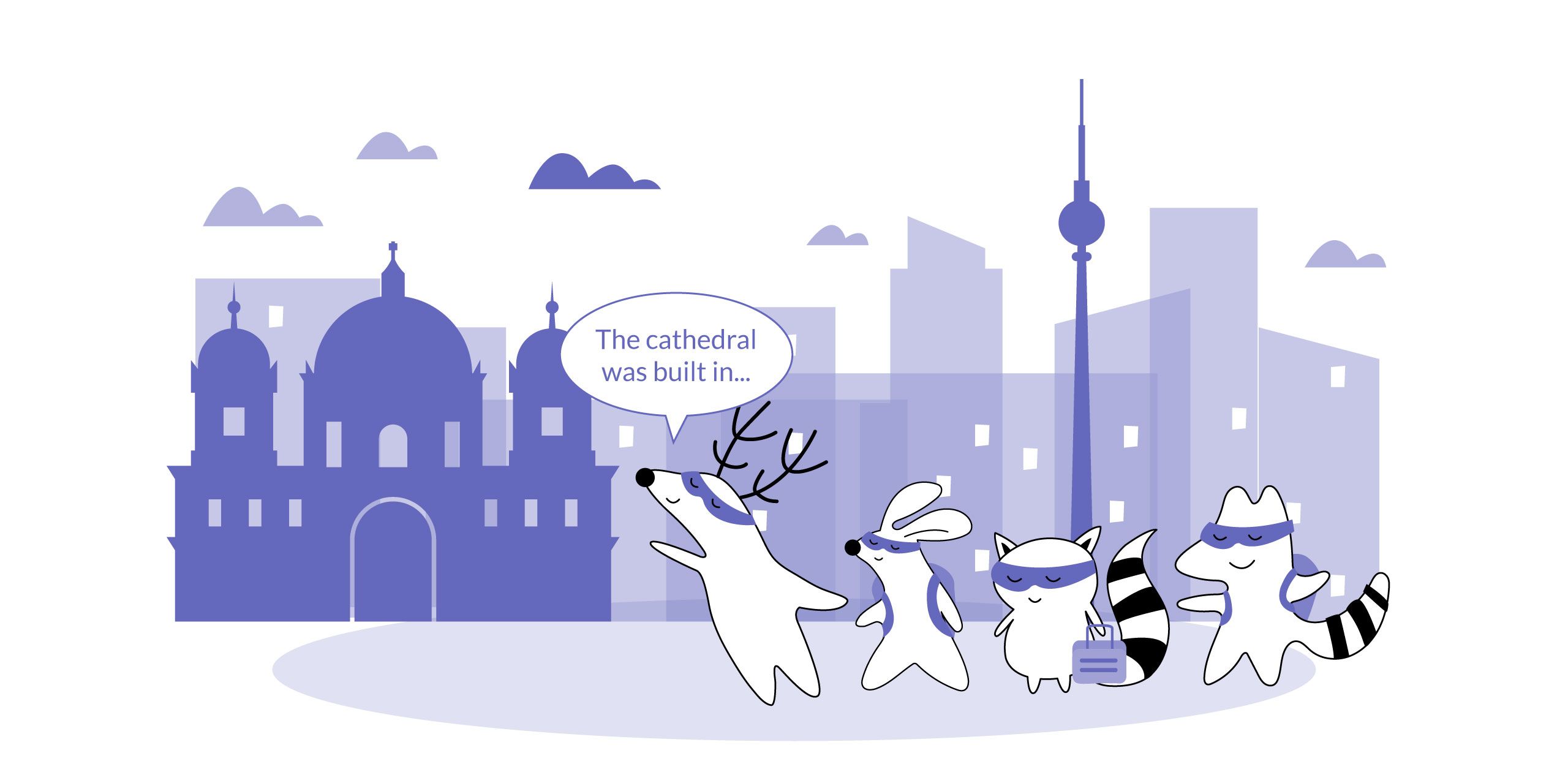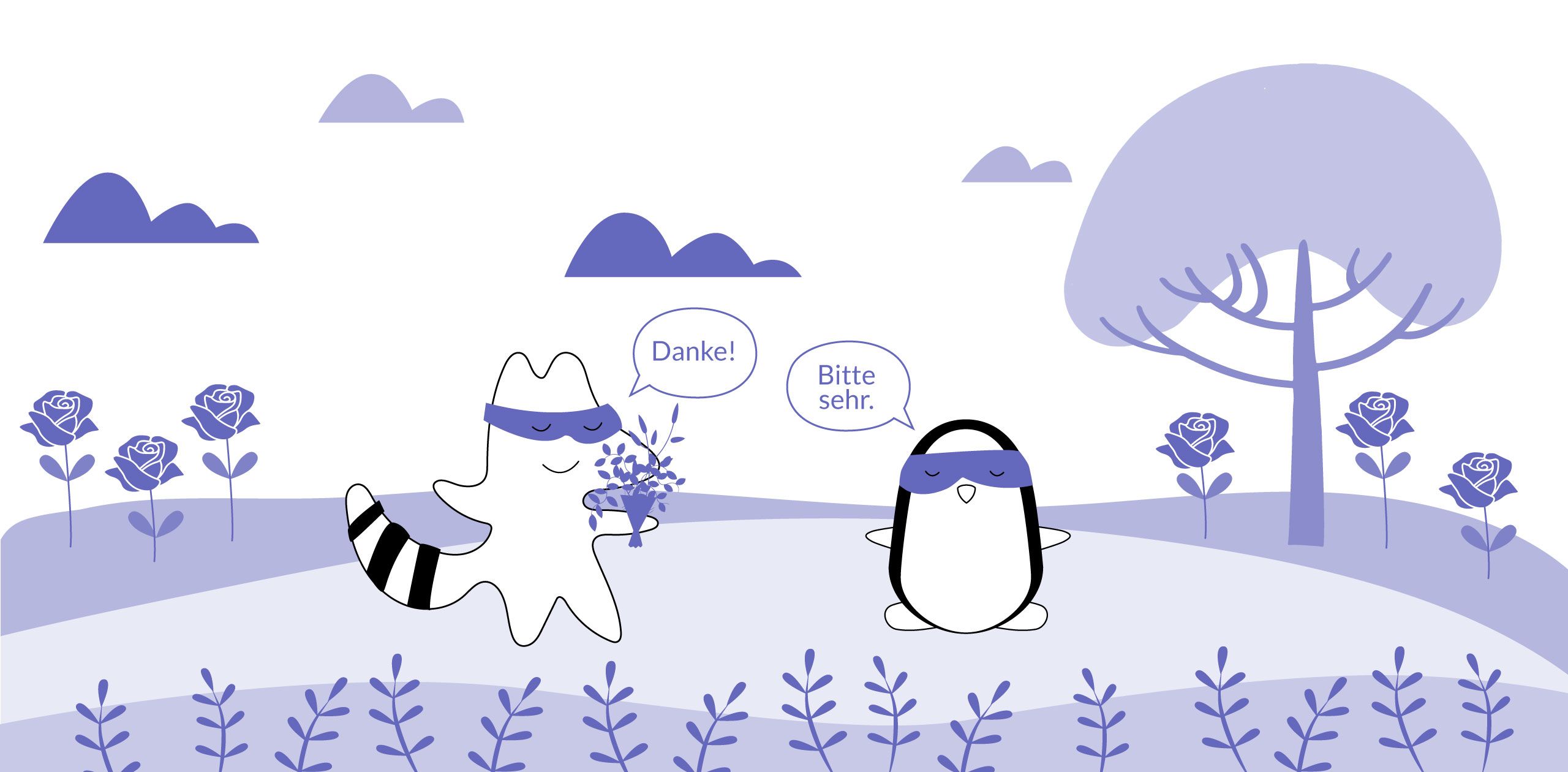
If you have read our previous post on saying "Thank you" in German, you know that being polite is essential in German culture. We have already covered when and how the Germans express their gratitude, as well as a brief introduction to saying "you're welcome" in German.
Nevertheless, there are many ways to respond to someone saying "Danke," and we would like to look at them in more detail in this post. By practicing this basic vocabulary, you will start speaking German quickly and have fun getting to know people in Germany.
We'll walk you through ten different ways to say "you're welcome" in German - so you can pick the polite phrases and start using them when speaking to the native speakers.
Learn German with Langster
The Typical Way of Saying "You're Welcome" in German
First Option - "Gern geschehen"
First, we will look at the typical German translation of "you're welcome" to understand better how the German language works.
If you look up “you’re welcome” in a German dictionary, you'll probably come across the phrase "Gern geschehen."
The literal translation of this phrase is not intuitive for an English speaker, but it be something like "I gladly did" or simply "gladly." Germans frequently use it, and they sometimes shorten it to the word "Gerne."
German
English
Gerne.
Gladly.
Gern geschehen
You're welcome
Second Option - "Bitte"
Often you will hear people respond with "Bitte sehr" when you say "Danke schön" to them.
It can be "Bitte sehr" or "Bitte schön," and the meanings are nearly identical, as the first phrase literally means "well pleased" and the second means "nicely pleased." They also frequently use the abbreviation "Bitte."
German
English
Bitte sehr / Bitte schön / Bitte
You're welcome
You will primarily hear those words in restaurants or bars because the waiters usually say them when serving you food or drinks. That can be a great opportunity to practice!
A Quick Summary
As a result, if someone says "Vielen Dank" (Thank you very much) to you, you have the following options to answer:
German
English
Bitte sehr
Well pleased
Bitte schön
Nicely pleased
Gern geschehen
I gladly did / gladly
Those three options are pretty formal. If you are looking for something more casual, keep on reading.
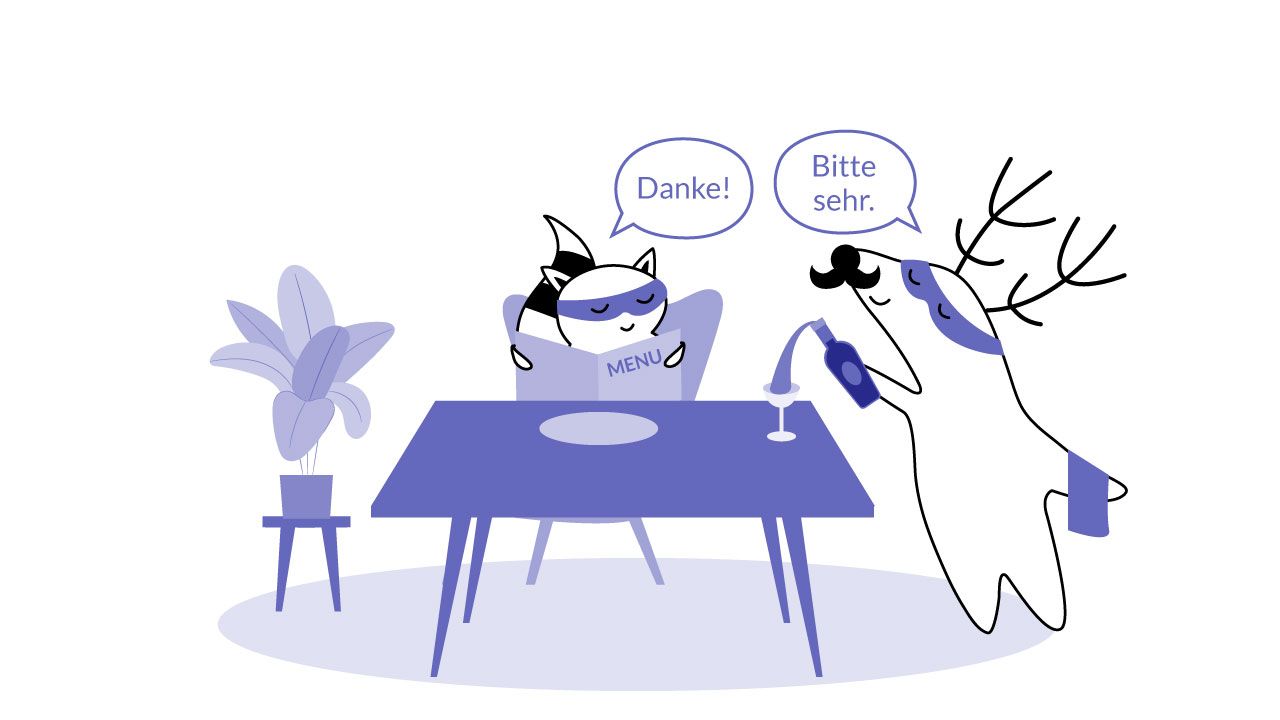
More Alternatives to Say "You're Welcome" in German
A few other ways to say "you're welcome" in German indicate that you were glad to help. They can be used as a response to "Danke sehr" - for example, after assisting a stranger by answering a question.
The first two options will be equivalent to the English phrases "no worries" or "not a problem." Using these phrases will make the person who thanked you understand they did not bother you with their request.
How to Respond with "No Worries" in German
There are several options if you want to say "no worries" in the German language, but most are similar to the English options.
The most common ones are "Keine Ursache" or "Kein Problem," both of which mean "no problem" in English.
German
English
Keine Ursache
No problem
Kein Problem
No problem
The English saying "nothing to thank me for" also exists in the German language and looks pretty similar.
You can say, "Nichts zu danken." Some people also use the phrase "Schon gut," which translates to "it is ok."
German
English
Nichts zu danken
Nothing to thank me for
Schon gut
It's ok
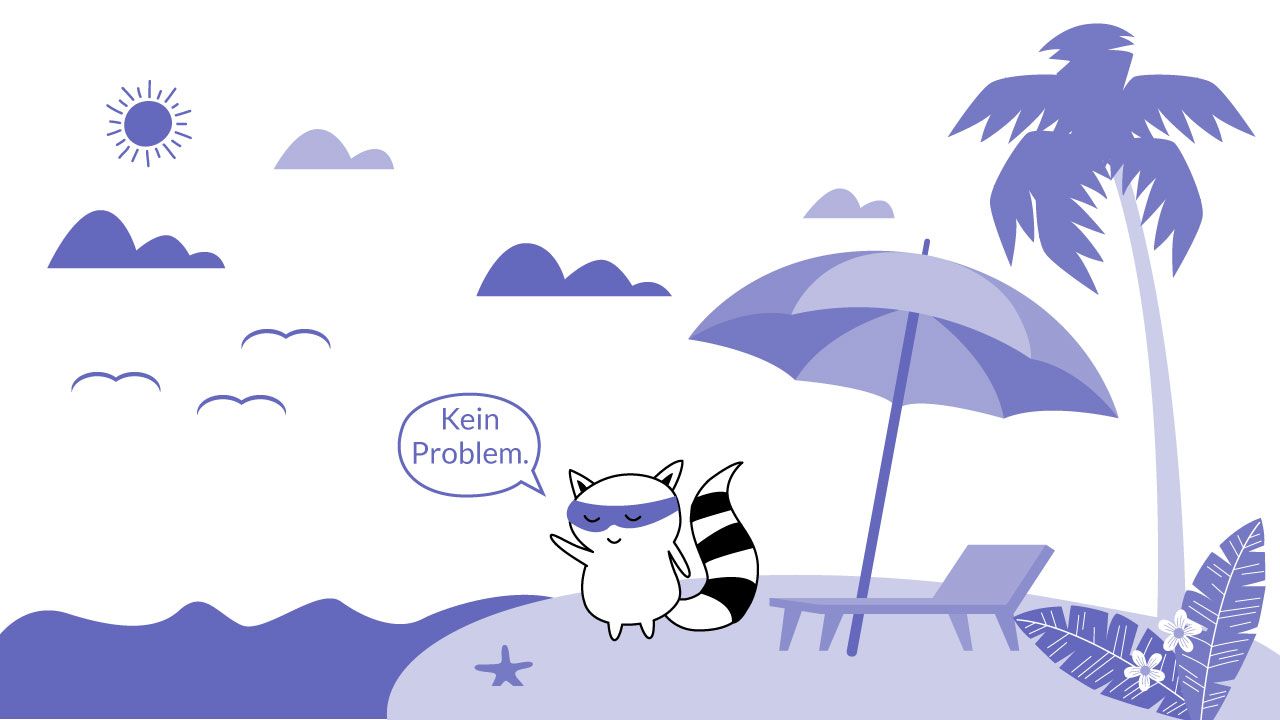
A Slightly More Challenging Version
We have one more option that is a little longer - in case you want to challenge yourself to learn more German.
In English, you might know the phrase "I am happy to help" - in German, a similar version exists - "Das mache ich gern." It would be literally translated as "I like to do it."
German
English
Das mache ich gern
I'm happy to help (lit. I like to do it.)
If somebody refers to a favor you did in the past, and you want to use this phrase in a past tense to express that you were happy to help, you don't need to learn much more. The same sentence in the past tense is "Das habe ich gern gemacht."
As you can see, the only difference is the verb. Instead of saying "Ich mache," you should say "Ich habe gemacht" (I have done). Past tenses are always advanced grammar when learning languages, so we won't go into detail here.
The only thing you should learn now about the German past perfect tense is that like the English past perfect, it works with the auxiliary verb "haben" (to have) and a participle.
The options above are used on a daily basis in Germany and are appropriate for formal and also casual situations. The important thing is that you can use all of them to demonstrate polite behavior.
A Response to a Big "Danke Sehr"
If you did somebody a big favor and they say "thank you very much" to you, which can be for example "Danke vielmals" or "Vielen Dank" in German, you might want to respond with a "you're welcome," which seems more appropriate as it shows it was an absolute pleasure for you to help.
An option would be saying "Mit Vergnügen," which could be translated as "my pleasure" in English. The phrase sometimes appears as a whole sentence when people say, "Es war mir ein Vergnügen." The literal meaning of that sentence would be something like, "it was a pleasure for me."
German
English
Mit Vergnügen
My pleasure
Es war mir ein Vergnügen
It was a pleasure to me
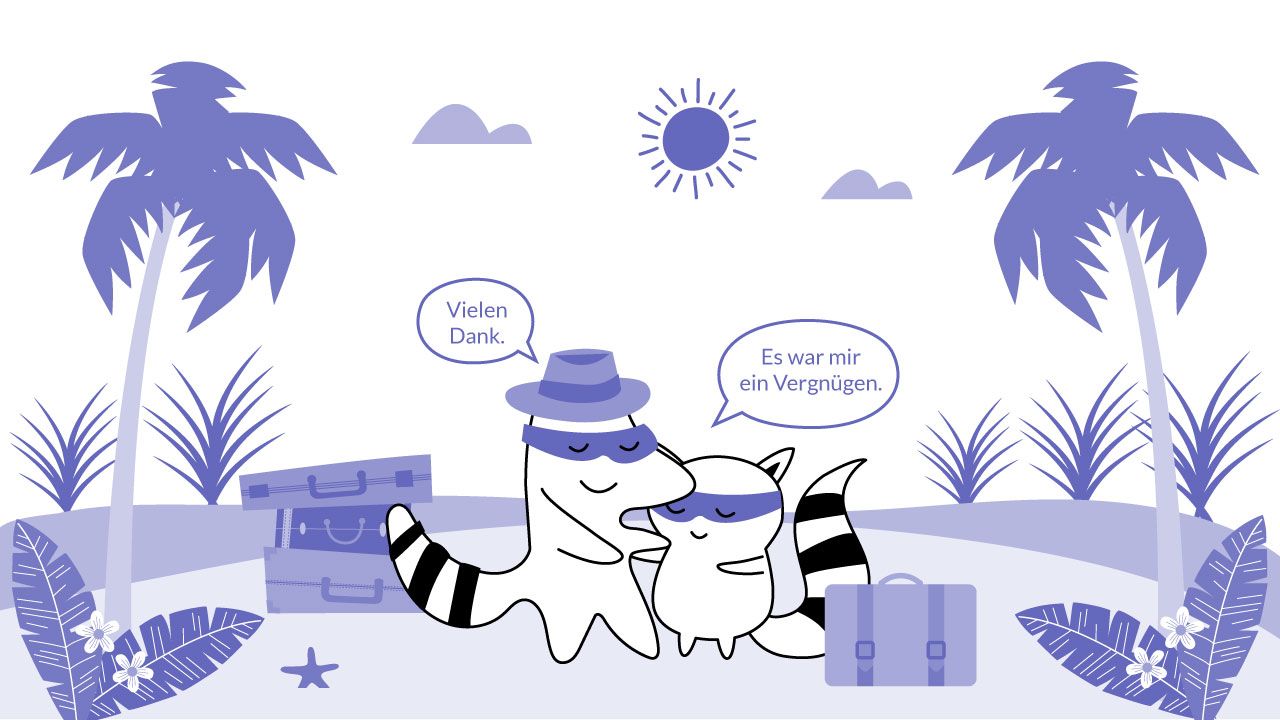
Even though the phrase is short, you might have difficulty pronouncing the word "Vergnügen" which contains the German umlaut ü. Read more about this letter here.
What Else to Consider While Saying "You're Welcome" in German
To communicate easily with Germans, you should also know Germans’ body language and typical behaviors. If not, you might use the right words, but people might still not get you.
As you know, Germans like polite behavior, and there are some things a person can do to make the situation of saying "you're welcome" even more polite.
When you say "thank you" to someone in Germany, it is respectful to look into another person's eyes. It does not matter if the context is formal or informal; other people should see that feeling in your eyes when you express gratitude.
The same thing works for saying "you're welcome" in German. Look into the other person's eyes while saying, "you're welcome," regardless of whether you’re in a formal or a casual context. Most Germans also shake hands while saying "thank you" or "you're welcome."
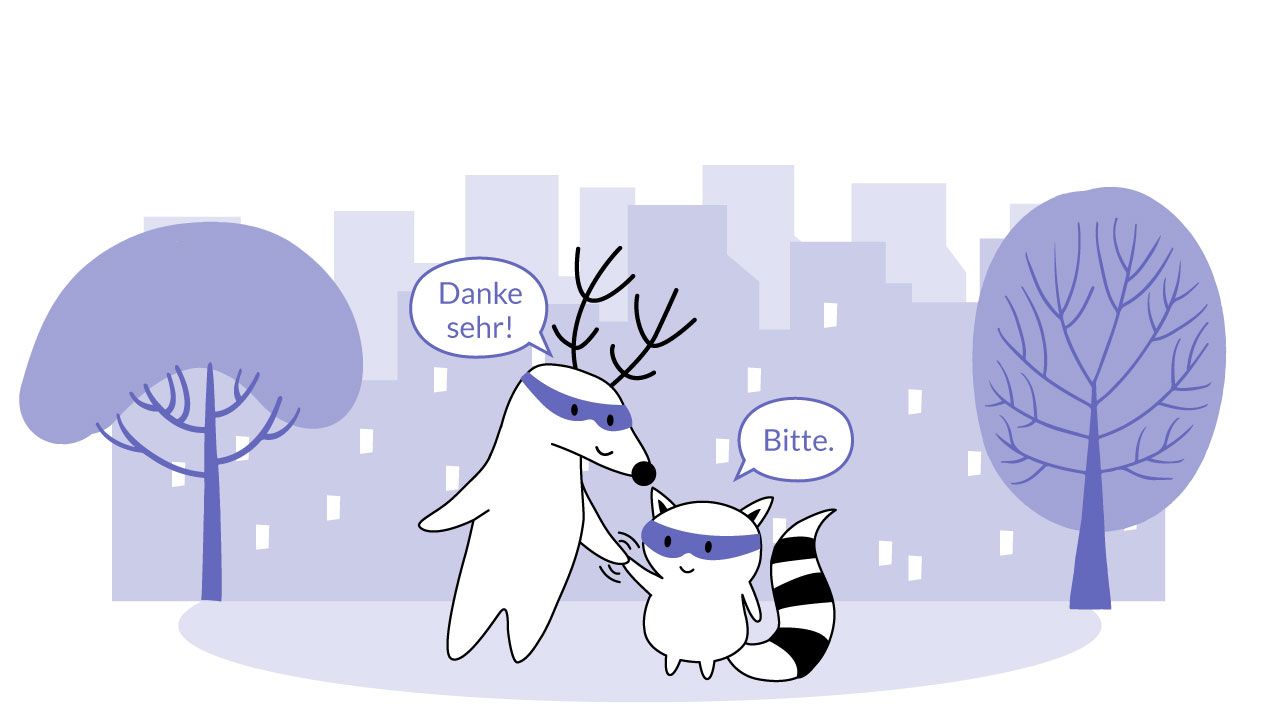
A Small Summary For You
We hopefully showed you that there are different ways to respond to "Danke schön" in German. You can go with the classic responses in formal situations, like "Bitte sehr" when you are in a restaurant.
But as you see, there are a lot of options, especially for informal contexts and some of them even help you to express that you enjoyed helping. Remember to look into people's eyes while saying "thank you" and saying "you're welcome." We hope you can remember some vocabulary and have fun during your language learning journey or when visiting Germany.
Learn German with Langster






